Covid: False negatives blamed for high case rates in West of England
- Published
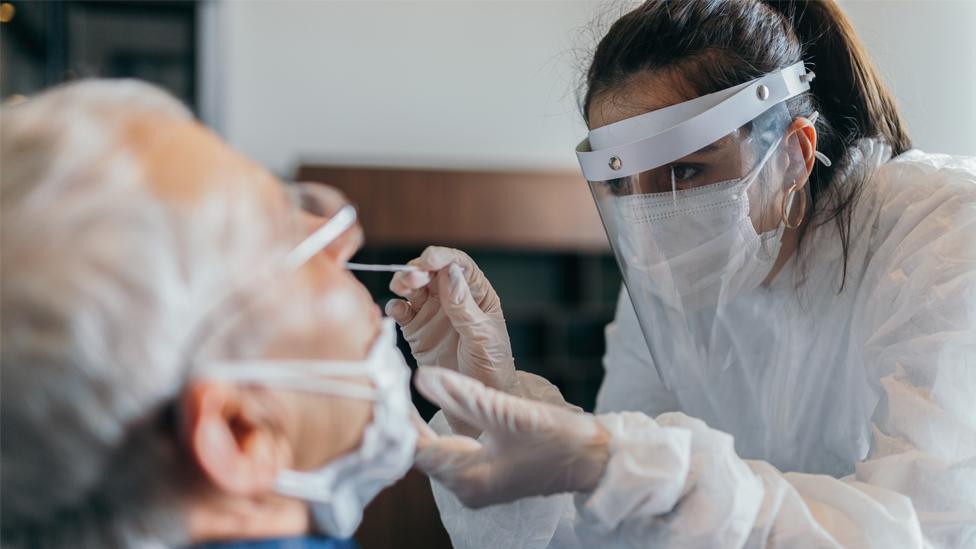
UK cases have been rising sharply but deaths are well below the winter peak
False negative results from PCR tests are being blamed for high Covid rates across the West of England.
Bath and North East Somerset currently has the highest rates of coronavirus in England, with 878 cases per 100,000 people - the highest it has seen.
Experts suspect this may be because people unwittingly infected others when they should have been isolating.
The UK Health and Security Agency said figures are going up across the country.
A number of areas are seeing the highest Covid-19 case rates seen since the start of the pandemic.
Swindon and Wiltshire also hit the highest it has ever recorded during the pandemic, with rates over 700 per 100,000 and schools severely affected.
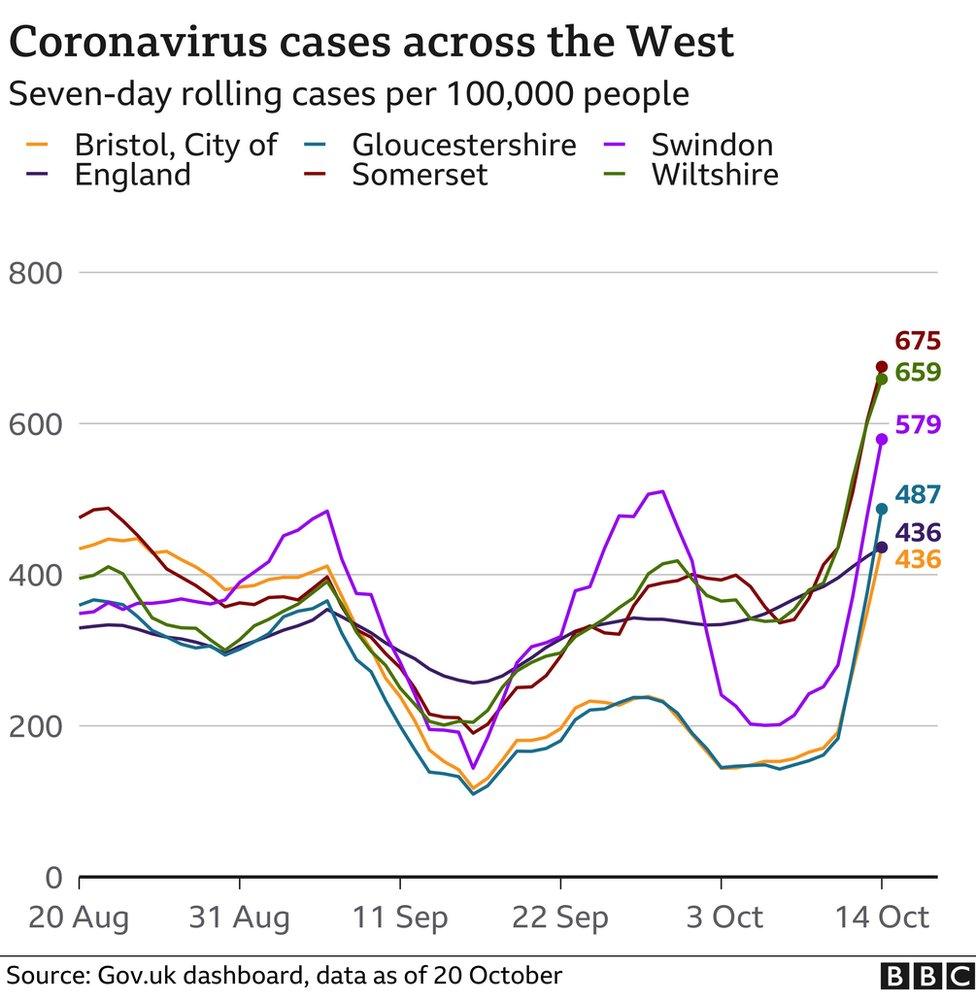
The number of hospital admissions across the West has also increased in the last six weeks, although the number of deaths is currently very low.
It follows about 43,000 people, mainly from the south west, being wrongly told their Covid-19 test was negative due to errors at a private laboratory.
A spokesperson for Somerset County Council said: "The recent laboratory PCR testing issue that gave people false negative PCR test results will have led to people not self-isolating when they were infectious, which will have led to the spread of Covid-19."
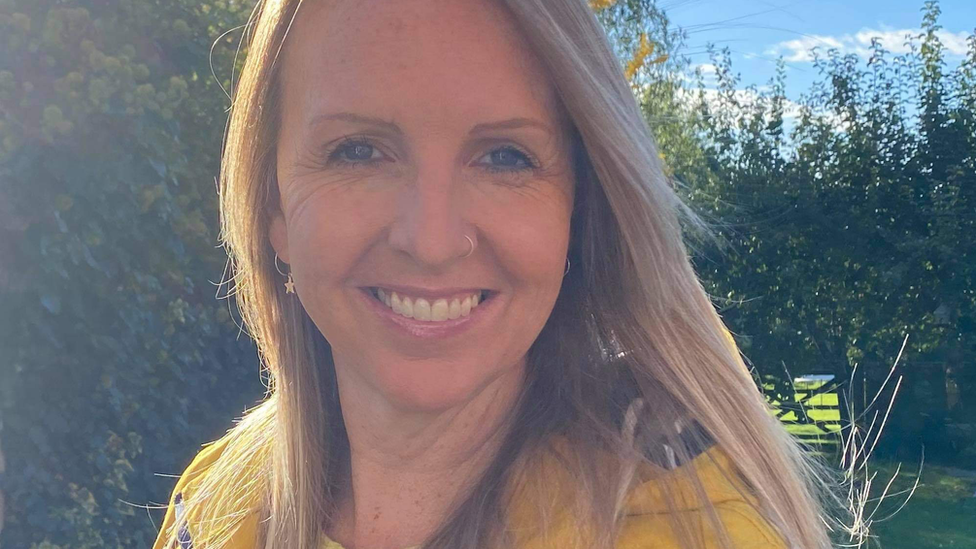
Two of Laura Smedley's four children had positive lateral flows, another had symptoms, but all of their PCR tests came back negative
Laura Smedley, from Wiveliscombe, near Taunton, and her family of six have all had Covid in the last three weeks.
She said she felt let down by the system at the point they needed it the most.
"My twins had positive lateral flow tests, so I took them and my oldest daughter, who was symptomatic, for PCR tests, all of which came back negative," she said.
"The PCR test is the gold standard test, so you take that at face value.
"We've seen elderly parents during that time and it has been very worrying. We've had a lot of people to contact to let them know we have tested positive now because of this."
'Seeded more infection'
Professor Trudi Grant, director of public health for Somerset, said as well as the recent laboratory PCR issue, high case numbers were being put down to a combination of the opening up of society, with children back in school and more people mixing.
"We've got cases coming through now that have been re-tested because they were potentially a false negative, but what we are also seeing is the impact of that.
"Because people, rightly so, got a negative PCR test, they have been out and mixing and gone to school, which to some extent will have seeded more infection.
"It is likely we will continue to see a rise in our cases over the short period of time, but I am hoping we can then bring them back down again."
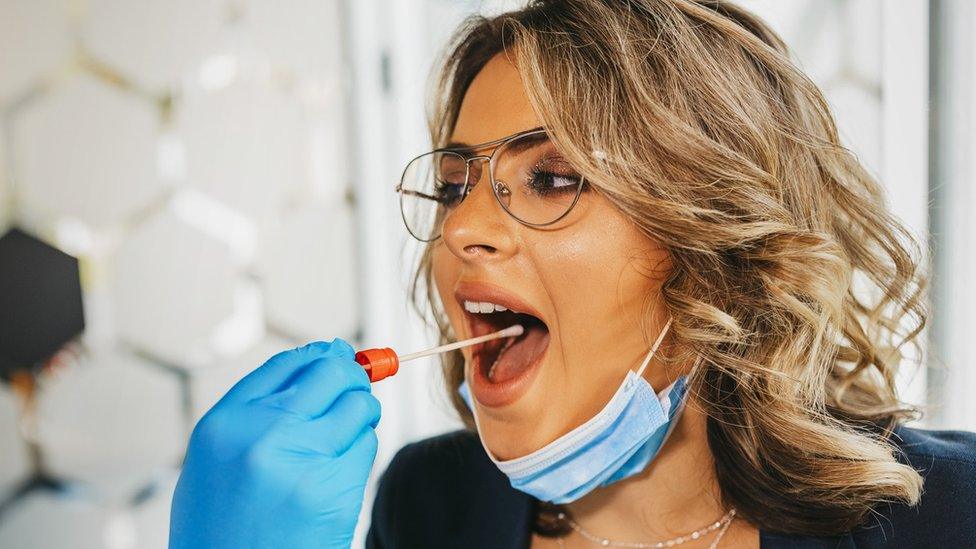
People are advised to isolate if they have had Covid symptoms and a positive lateral flow test, but then receive a negative PCR result
The NHS Confederation said a sharp rise in cases meant measures including mandatory face coverings in crowded and enclosed spaces should be implemented.
The UK Health Security Agency said the latest data showed case rates have risen in all regions.
It said that the 43,000 false negative PCR results have not been added retrospectively to figures for the West.
The agency has contacted all those where there was a possibility they may have still been infectious, to advise them to take another test.
If they took up the offer and it was positive, they would be added into the statistics for that day.
A spokesperson said investigations are ongoing at the Immensa laboratory in Wolverhampton, which will include looking at any potential impact this may have on case rates.

Follow BBC West on Facebook, external, Twitter, external and Instagram, external. Send your story ideas to: bristol@bbc.co.uk , external
- Published20 October 2021

- Published22 October 2021
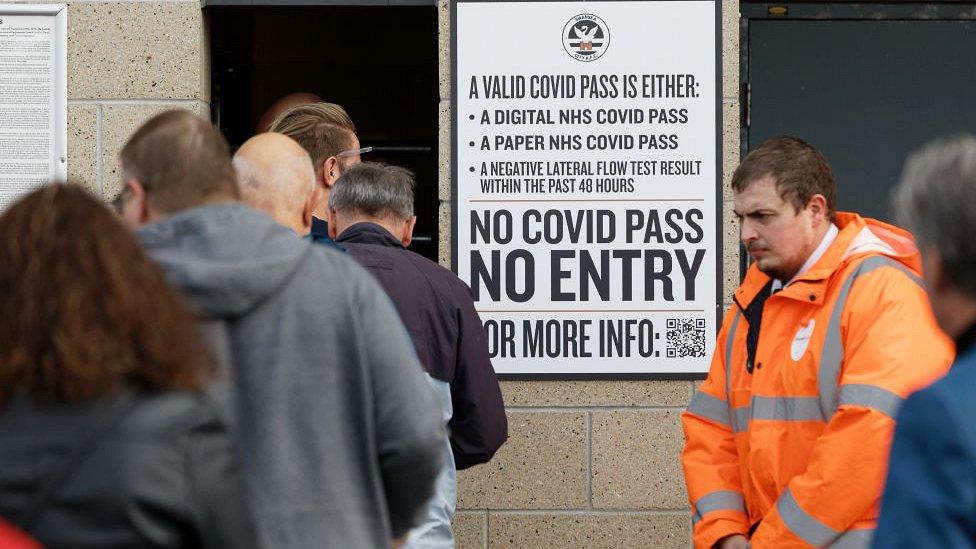
- Published15 October 2021
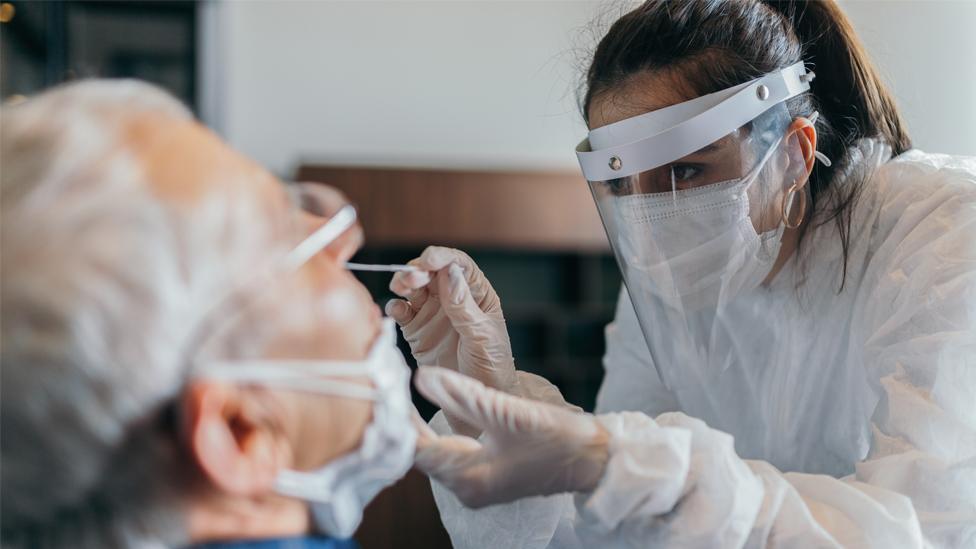
- Published14 October 2021
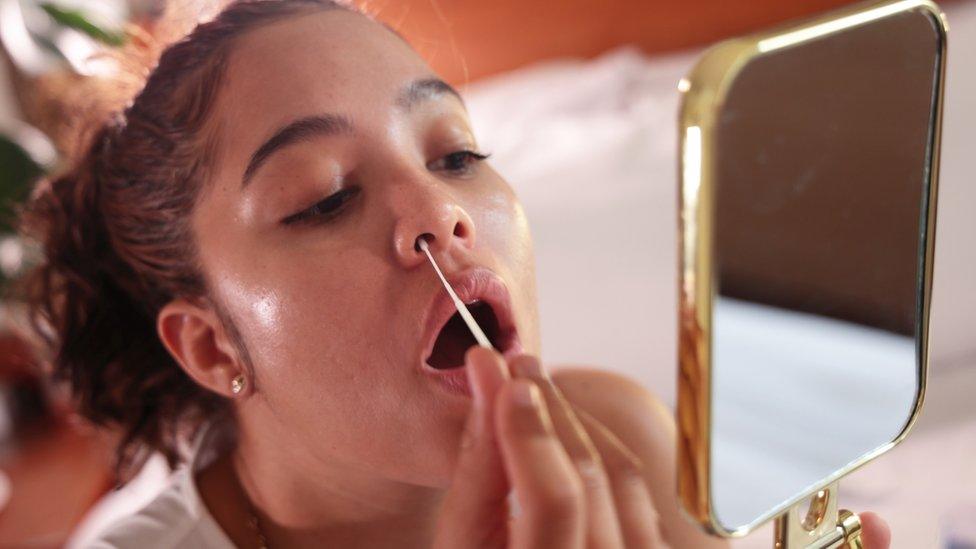
- Published8 October 2021
